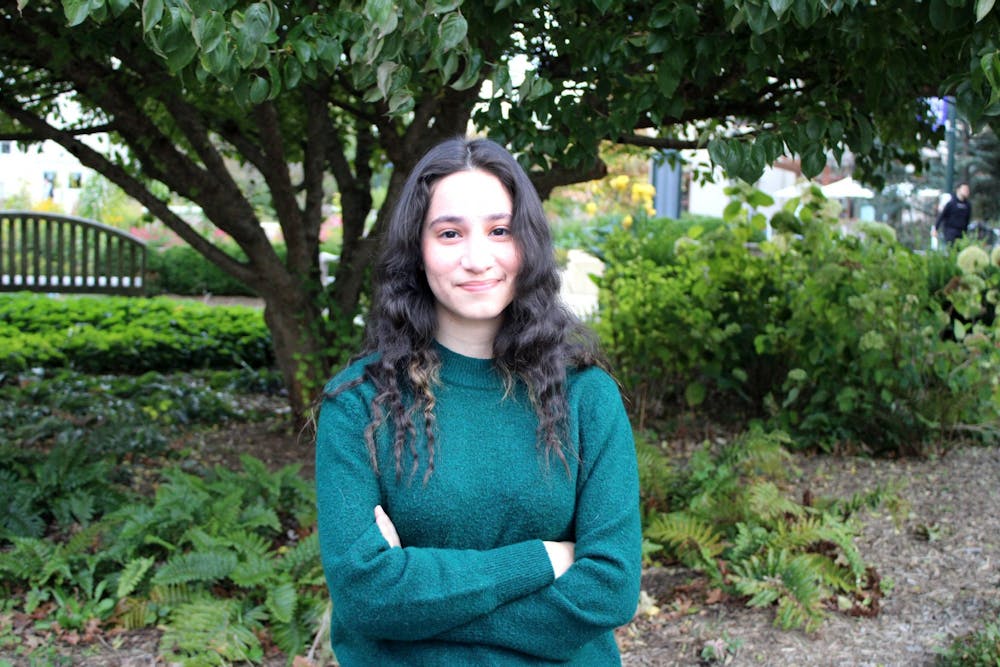American University advertises itself as a creator of changemakers. Despite this, AU fails to acknowledge that many of its students become changemakers as a result of demanding basic action from the University. This pattern of student action in the face of University inaction is extremely present in the previous and current administration’s handling of sexual violence on campus. Through its inaction, AU pushes survivors to advocate for change with no regard for the emotional strain and reliving of trauma that such organizing can cause.
After an incident of sexual assault was announced in a University-wide email in October, hundreds of AU students gathered on the quad for a walkout protesting the shortcomings of the University’s Title IX policy. The walkout itself was organized by two AU seniors and AU’s chapter of the organization It’s On Us. The chapter has established a grassroots approach to combating sexual violence through awareness and prevention education. The importance of survivor input and grassroot approaches in Title IX policies cannot be understated, but at the same time, there should be no expectations placed on survivors to reform policies and rape culture within universities or to educate administrators and students on their trauma. Advocacy from survivors should be commended and heard in its entirety, but it must be understood that reform is not the responsibility of survivors.
Before the walkout took place, the Office of Campus Life sent an email detailing academic policies as they related to the protest. Specifically citing AU’s Freedom of Expression Policy, the Undergraduate Academic Rules and Regulations and the University’s staff leave policies, the office grazed over the emotional labor of such advocacy. The office mentions support but focuses on the reputation and physical appearance of the University. As opposed to offering educational resources on trauma and assault, administrators viewed the walkout through a lens of self-interest. In communicating about student expectations of conduct, but failing to provide sufficient outlets for emotional strain, the University makes its priorities clear.
The heartfelt speeches given at the walkout were incredibly important for the AU community, calling students and administrators to action. This shown compassion and activism becomes even more central to AU’s solidarity due to the University’s lack of adequate resources. The Center for Well-Being Programs and Psychological Services is a prime example of inadequate resources, as it offers a mere six to eight annual therapy sessions to students and a singular victim services advocate for thousands of students. A maximum of eight annual sessions are unlikely to sufficiently aid with trauma and a singular victim services advocate is misleading, as the office is listed as a primary, available resource.
Although extremely helpful, it is unacceptable that survivor’s advocacy be the only substantial support and change for students. The survivors at the walkout felt comfortable sharing their experiences; however, this is not a given for all survivors. AU develops a culture of expectation and dependence on survivors in its inadequacy, when it should be employing more trauma specialists and licensed professionals to aid students in their experiences.
This expectation on survivors and lack of support is not an isolated occurrence. In 2014, students demanded action after 70 documents were leaked from Epsilon Iota, an unrecognized fraternity at AU. These documents detailed rape, drugging and violence against women at the University. AU did expel various students and changed its sexual misconduct policies, but only after three years of student protests. The University had 67 charges of Student Conduct Code violations specific to EI prior to the leak and provided no additional resources or emotional support references. The administration did, however, accept an award for its Sexual Assault Prevention efforts from EVERFI Inc., despite it being awarded largely due to Empower AU, a student-led program against sexual violence.
The same expectation and lack of support can be seen from AU in their response to sexual violence on campus in 2020. While students were anonymously sharing their experiences with sexual violence on social media, the University discouraged such posts, saying in a statement that the posts may have “unintended consequences” and provided no other emotional or preventative outlet. Despite Title IX policies being federally dictated, AU still has the power to change its student conduct code in the interest of on-campus safety. The University must take accountability for the cultures of expectation and sexual violence it has upheld and move towards long-term change, such as widespread policy reform and increased trauma specialists, in place of situational and deflective solutions.
Survivors do not owe it to anyone, much less to an administration that undermines their struggles, to protest or stand on a platform. My hope for us is to feel supported and comfortable, and each path to healing should be the choice of the individual.
Rebeca Samano is a sophomore in the School of Public Affairs and a staff columnist for The Eagle. This article was edited by Alexis Bernstein and Nina Heller. Copy editing by Isabelle Kravis, Leta Lattin, Sarah Clayton, and Natasha LaChac.





